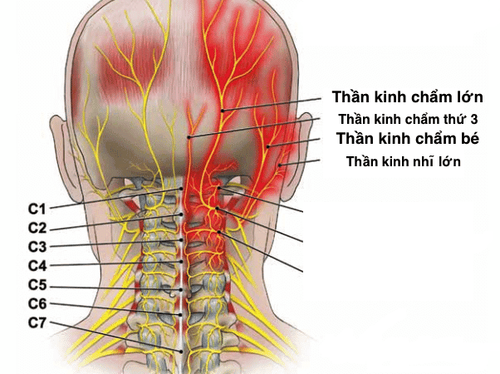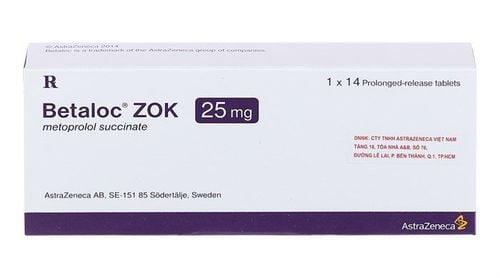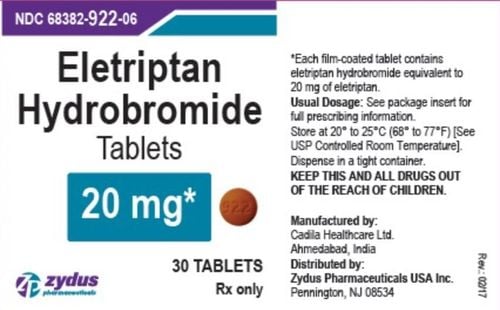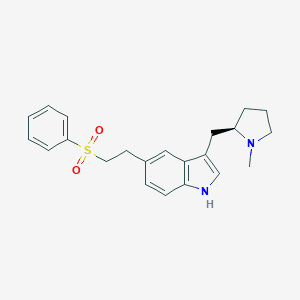This is an automatically translated article.
This article is professionally consulted by Master, Doctor Nguyen Van Thai - Neurosurgeon - Department of Medical Examination & Internal Medicine - Vinmec Central Park International General Hospital.Occipital neuralgia is one of the most common causes of headaches. Occipital neuralgia is often confused with migraine or similar headaches because the symptoms are quite similar.
1. What is occipital neuralgia?
The occipital nerve originates from cervical vertebrae 2 (C2) and (C3), ascends and innervates the scalp of the nape of the neck. Occipital neuralgia occurs when the occipital nerve, or the nerve that runs from the top of the spinal cord through the scalp, is damaged or inflamed.Occipital neuralgia is a common cause of headaches. Because of similar symptoms, occipital neuralgia is sometimes confused with migraine.

2. Causes of occipital neuralgia
Occipital neuralgia may be primary or secondary. The disease may appear secondary to an underlying disease such as:Injury to the major and minor occipital nerves. Compressed due to degenerative changes of the cervical spine. The tumor affects the C2 and C3 nerve roots. Infection.
3. Symptoms of occipital neuralgia
Most patients usually have pain on one side of the head, but it can also affect both sides of the head. Pain in the back of the head. Symptoms of occipital neuralgia include:Continuous pain. The pain usually begins at the base of the skull and may radiate to the back or along the side of the head. Sharp, pulsating pain, with alternating sharp pain or feeling like an electric shock at points: above the neck high, behind the head, behind the ears At first the pain is sparse, the pain is intermittent, then the interval between attacks gradually shortens, up to 2-3 attacks/day or even continuous pain

4. Treatment of occipital neuralgia
Non-surgical treatmentMainly the use of pain relievers to relieve the patient's symptoms. Patients can relieve pain on their own with warm compresses, rest, or physical therapy, such as massage. If the pain is more severe, the patient should take pain relievers, anti-inflammatory drugs, muscle relaxants. Anticonvulsants such as Carbamazepine and Gabapentin may also help relieve symptoms. Depending on the cause of occipital neuralgia, the doctor will advise medical or surgical treatment.
Vinmec International General Hospital is one of the hospitals that not only ensures professional quality with a team of leading medical doctors, modern equipment and technology, but also stands out for its examination and consultation services. comprehensive and professional medical consultation and treatment; civilized, polite, safe and sterile medical examination and treatment space.
Doctor Nguyen Van Thai has many years of experience in the examination and treatment of internal neurological diseases at Cho Ray Hospital. Currently, he is a doctor at the Department of Medical Examination and Internal Medicine, Vinmec Central Park International General Hospital.
Please dial HOTLINE for more information or register for an appointment HERE. Download MyVinmec app to make appointments faster and to manage your bookings easily.














